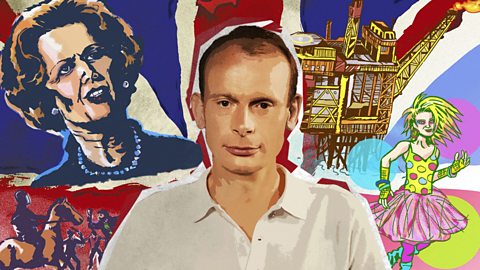
He was also impressed that Marr maintained his penetrating scrutiny and level of insight throughout the series. Gareth McLean congratulated Marr for analysing the times in which he immerses himself, effortlessly communicating his enthusiasm, and hinting at fundamental truths of the human condition, which he stated was the future of factual programming. Just when many in post-war Britain are getting used to the good life, it seems we might have to start giving up our big cars and foreign holidays.įellow historian Tristram Hunt, writing in The Guardian, complimented Marr for his confrontational, argumentative, personalised history, stating that television history, done well, should be more of an ice-bath than a comforting, warm soak. Britain feels more vulnerable than ever to rapid international change – from the influence of powerful new global market forces to global warming. Many have done well in the end during the Thatcher years but now boom is turning to bust. Heroic national rescue operation or final act of self-destruction? An exploration of the extent to which we British are all now the children of Thatcher.īritain enters the uncharted waters of the post-Thatcher era. Privatisation and deregulation amounted to a cultural, economic and political revolution.

Imperial visions stirred again as the fleet sailed for the Falklands. It was a period of extreme ideological polarisation. When Heath asks "Who governs?", the British public gave their answer.Īndrew examines the Britain of Margaret Thatcher, and comes to some surprising conclusions about the British national character.

As Edward Heath's government ascends to power in the 1970s, British industry is reduced to working a Three-Day Week, electricity is rationed and the country is again haunted by the shadow of wartime austerity. However, the Wilson governments presided over years of industrial conflict, stagnation and decline. In 1961, the liaison between working-class Christine Keeler and Secretary of State for War John Profumo brought the closed world of the British establishment together with the cocky new Britain growing up around it.Īs the 1960s progress, Harold Wilson takes centre stage in a rapidly changing Britain as the country looks to modern technology and a fairer, liberated future. The 1950s were a period of apparent calm, order and prosperity for Britain, but much of the populace was hungry for change, many began to distrust the government and protestors and satirists led people to question and mock their rulers.
A History Of Modern Britain Torrent series#
Though Ealing Studios produces a series of very British comedies and there is a spirit of hope in the air, the British people's growing impatience with austerity threatens to take the country from bankruptcy to self-destruction.

As Clement Attlee's Labour government sets out to build 'New Jerusalem', Britain is forced to hold out the begging bowl in Washington. A book released by Marr accompanying the series and bearing the same name also details this period of history.īritain in 1945 the country is victorious but nearly bankrupt. The series was highly praised, and resulted in a follow up series covering the period 1900 to 1945, Andrew Marr's The Making of Modern Britain. Andrew Marr's The Making of Modern BritainĪndrew Marr's History of Modern Britain is a 2007 BBC documentary television series presented by Andrew Marr that covers the period of British history from the end of the Second World War onwards.


 0 kommentar(er)
0 kommentar(er)
